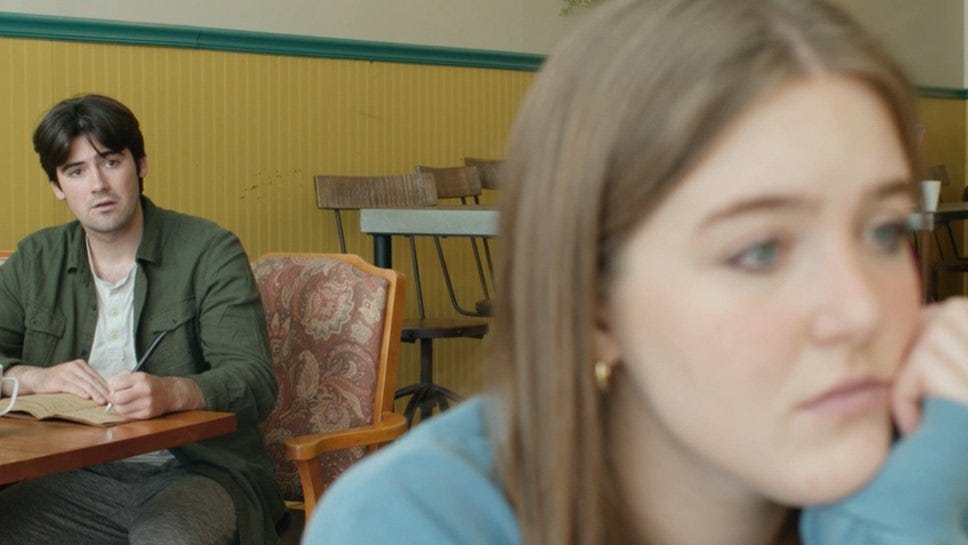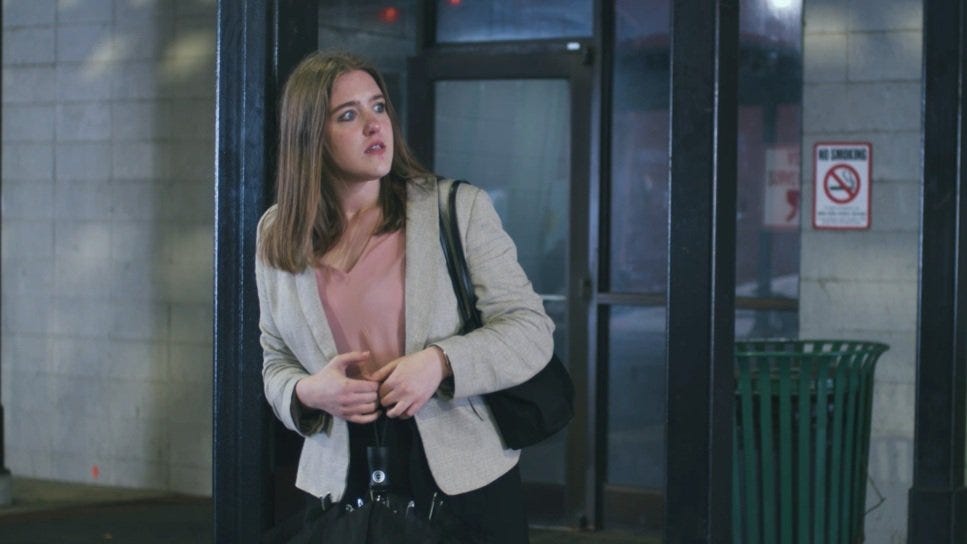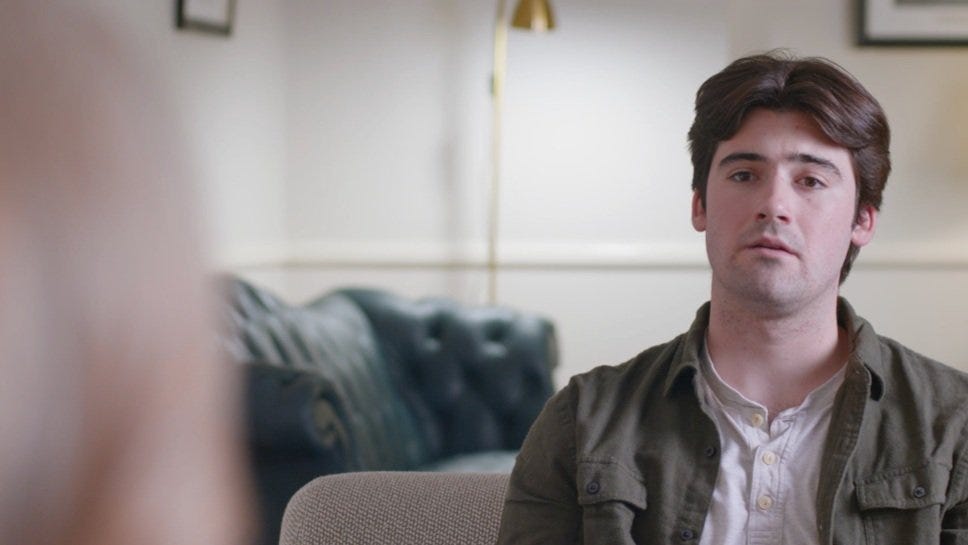Short Film Review: ‘Rewriting Mallory’ (2023)
Director Emerson Adams beautifully navigates this journey of discovery after tragedy. It begs the question, “Are we the ones who write our own story?” Between Malcolm Vanderwoude’s script and Adams’ direction, the film shapes its own narrative for
★★★★
Drama (21 minutes)
dir. Emerson Adams
Starring: Tammy Sanow, Jonathan Erwin, Lucy Borchers, and Timothy J. Cox
“The film follows the lives of two people struggling to maintain control amidst the messy reality of an unpredictable life.”
— Official Synopsis
Grief’s heavy grip lasts an eternity. When I am reminded of my mother, I can’t help but think of a prevalent quote from WandaVision: “What is grief, if not love persevering.” Over time, our most cherished moments feel almost surreal and the memories begin to blur into each other; nonetheless, the love remains the same—or perhaps, grows stronger. I’ve noticed, as I’m sure others have, that as we begin to adapt to a new way of life after loss the stories we tell of our past inevitably change. Most of the time it’s subtle infractions of our psyche, like forgetting the color of their favorite shirt or a specific sequence of events. It can be frightening if you’ve never experienced it before, but I’ve reconciled with how my mind idealizes distant memories. Taking what was once just a normal thought and unintentionally reconstructing a narrative of peace and serenity. This largely serves as the thematic basis for Rewriting Mallory.
Director Emerson Adams beautifully navigates this journey of discovery after tragedy. It begs the question, “Are we the ones who write our own story?” Between Malcolm Vanderwoude’s script and Adams’ direction, the film shapes its own narrative form that culminates uniquely in this particular story. Joshua (Jonathan Erwin) is grieving the loss of his late sister and begins to reminisce on what she was like and how her sickness affected her. Meanwhile, we follow Mallory’s (Tammy Sanow) story over the course of one day—which might just be the worst day of her life. Its simple presentation lends itself well to the context of the aforementioned themes when the filmic intent of the story becomes clear. We think we have an idea of where the filmmakers are taking us over the course of 21 minutes, yet it materializes much more satisfyingly than imaginable.
Vy Tran’s cinematography captures the feeling of letting your hand drift across the lines of a journal while sprinkling some astonishing visuals throughout; a few frames that vividly protrude in your mind long after the end credits. However, the finishing touches that make the film a cohesive, captivating experience come from the final edit. When critics mention that films are made in the editing room this is precisely what they mean. The balancing act between viewer’s expectations and subversion rest upon how well the intercutting and pacing of the story mix. In that regard, this is one of the most structurally sound projects in the short film market and an example to follow for other creators.
Sanow and Erwin are largely to credit for how Rewriting Mallory taps into the viewer’s emotion. Their performances are both believable and incredibly subtle. Joshua’s expression when seeing a family enter his favorite café reminded me of how emotional I become when seeing a healthy child with his mother in public spaces. It wasn’t a scene they were capturing on camera: it was a moment in time. Too often, films turn similar parallels sour—but Rewriting Mallory’s strength lies in the graciousness of acceptance and levity in hard times. While the story material may seem static for those who’ve seen far too many movies centered on grief (as have I), this short’s bitter subject dissolves sweetly on the tongue leaving a lasting impression. I would certainly recommend adding this to your watch list.




